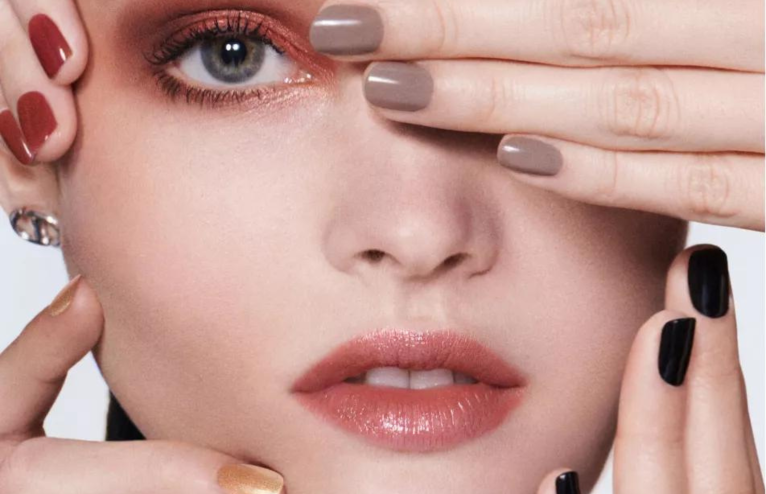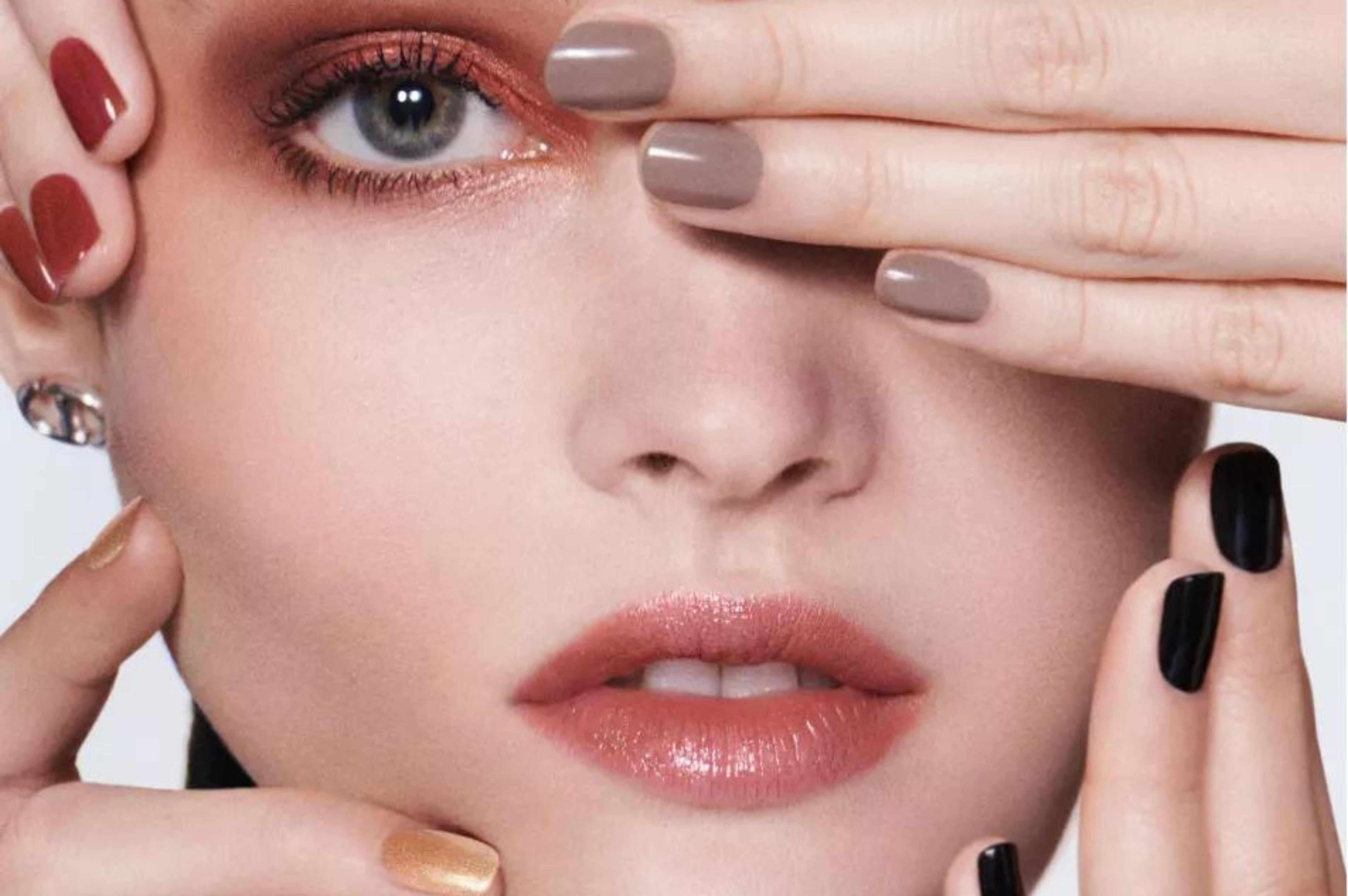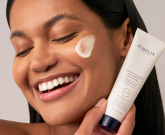Stress: for many of us it feels like an unavoidable fact of a busy life, but you might be less aware of how much stress can affect your skin.
We spoke to the experts to discover the truth about both short and long-term stresses on your skin, as well as the ways and products you can use to ease the side effects.
What is the effect of stress on your skin in the short term?
Stress can have an immediate affect on your complexion, which you’ve probably felt and seen before a moment that raises your heart rate, such as a big presentation or looming deadline. This may include facial flushing, especially redness around your cheeks, as well as itching sensations on your body as a whole.
The latter can often be a result of a histamine reaction, which anyone who struggles with hay fever may be familiar with. Your body releases the chemical histamine, most significantly, in cases of allergic reactions; stress also increases the level of histamine in your blood. While stress doesn’t cause allergies, it can make them worse and lead to acute allergy symptoms such as itching and irritation that show via your skin.
At the same time, some individuals may also have stress-related habits that are bad news for your complexion too. Skin picking – both on the face and commonly around the nails and hands – can lead to sore patches, redness and dryness. Frequent touching of the face during periods of stress may also transfer excess oils and dirt to your skin, leading to an increased risk of clogged pores and breakouts. This can also further exacerbate stress levels by causing anxiety around your personal appearance.
View this post on Instagram
What does stress do to your skin in the long term?
“In terms of chronic stress … it’s imperative to focus on how our body responds to stress,” explains the Derm GP and skincare expert for Faace, Dr. Sonia. “It all comes down to the hypothalamus-pituitary-adrenal (HPA) axis, which is our body’s stress response system. Our body produces the hormone cortisol in response to the HPA axis being stimulated, which is often referred to as the “stress hormone.”
Cortisol, a steroid hormone, is what causes that heart-in-the-mouth, slightly sweaty sensation you get when faced with a stressful situation, as it puts your body into “fight, flight or freeze” mode. In the short term, that can be a good thing to help your body prepare to deal with the stress trigger, but if cortisol levels stay high within your bloodstream, aka chronic stress, it has been shown to impair health, including causing high blood pressure, depression and obesity.
Unfortunately, cortisol also has negative effects for your skin over time too, leading to many of the common skin complaints. These includes a drier complexion due to an impaired barrier; acne flares due to increase sebaceous gland activity; and even accelerated ageing, such as wrinkling, due to increased oxidative stress on the skin.
“Cortisol affects the integrity and protective function of the skin barrier which can aggravate conditions such as eczema and psoriasis, and also lower the threshold for itching,” further explains Dr. Sonia. “It can also affect your immune system and can cause your skin to be more reactive and sensitive, triggering hives as well as leaving you vulnerable to infections such as flare ups of herpes simplex virus, which causes cold sores.”
View this post on Instagram
What can you do to support stressed skin?
1. Keep it simple
“I recommend going back to basics. You may not be able to control the stressful environment around you, but you can control your skincare routine,” says Dr. Sonia.
Stressful occasions, such as deadlines, are not the time to introduce lots of new products into your routine, especially those that can be a bit more aggressive, such as retinoids. Instead, stick to calming and soothing formulas, and if you only do one thing for your skin, always give your skin a thorough cleanse at the end of the day. Taking a few deep breaths as you apply your cleanser over the sink, can even turn your routine into a little calming ritual.
The best cleansers for stressed-out skin
2. Support your skin barrier
Your skin barrier is the outermost layer of your skin and it is integral for keeping dirt and infection out of your body. It is also incredibly important for helping lock-in moisture. Signs of an impaired barrier include dry, flaky skin, as well as a complexion that is more prone to redness and irritation.
To help support and repair your skin barrier, look to skincare ingredients that mirror those found naturally in the skin itself. Ceramides are lipids that are a key component of barrier structure, while hyaluronic acid (frequently in skincare as the more stable sodium hyaluronate) is well-known for its ability to bond with and keep water in the skin. Both can be found in many nourishing moisturisers and serums suitable for sensitive, stress-prone complexions.
The best barrier products for stressed-out skin
3. Choose PHAs
When you’re tired due to stress-filled days and slightly sleepless nights, it can be really tempting to reach for products that promise instantly brighter-looking skin as a skincare routine short cut. That can work in the short-term, but if stress is also causing your skin to become more sensitive, it’s a recipe for irritation down the line.
Instead, look to PHAs (poly hydroxy acids), such as glyconolacctone or lactobionic acid, or formulas that combine AHAs with PHAs to minimise irritation. PHAs are ingredients that are larger in size than popular exfoliants, such as the AHAs lactic acid and glycolic acid. That means they penetrate less deeply into the skin, for a more gentle sloughing off of dead skin cells. They also help lock in moisture, for a more glowy complexion, with less side effects, even for sensitive skin.
The best PHAs for stressed-out skin
4. Embrace antioxidants
Antioxidants are substances that can help protect your skin from accelerated skin ageing, as they counteract and limit the effect of free radical damage and oxidative stress, caused by factors such as UV and pollution and accelerated by stress. This means they can support collagen and elastin production, keep skin hydrated and reduce inflammation, with scientific research and reviews particularly supporting their use for skin conditions such as psoriasis and acne.
A popular antioxidant for skincare is vitamin C, although zinc, polyphenols from plant derivatives, selenium and vitamin E are also ones to keep an eye out for within your beauty products.
The best antioxidants for stressed-out skin
4. Don’t fight breakouts
Skin blemishes are not only a consequence of stressful occasions, but they can also cause anxiety too. While it is tempting to pick, squeeze and aggressively treat your breakouts with stripping formulas, your skin (and mind) will actually respond better to some TLC.
Swap squeezing for spot stickers to help you avoid fiddling with blemishes, and change out harsh scrubs and toners with clarifying serums that encourage skin healing and reduce redness while keeping blemishes from becoming too noticeable. Ingredients such as niacinamide and willow bark can be especially effective.
The best breakout products for stressed-out skin
What about your lifestyle?
As well as reinforcing your skincare routine against stress, it’s important not to forget that your lifestyle holds the key for minimising stress’ impact. “Our body relies on our daily routines through our sleeping patterns, eating patterns and daily activities, all of which contribute to our wellbeing,” says Dr. Sonia.
Many common coping techniques such as meditation and spending time in nature, are clinically-proven to help manage stress levels, with an increasing number of online options for busy calendars. However, ultimately, sleep and nutrition are the two main factors for a healthier stress-relieving routine.
“Regular sleeping patterns can help normalise cortisol levels which can have a significant impact on stress levels and skin,” says Dr. Sonia. “Ideally, you should try to wind down both your body and mind a couple of hours before bed, and avoid intense TV series or movies, social media and your phone during this time. If you are really struggling, Sleepstation is a six-week online course app, which is free to use with a referral from your GP to help you get the rest you need.
“Another important tip is to try and eat a diet rich in antioxidants, such as Vitamins A and C and magnesium (abundant in fruits, vegetables, nuts andseeds), lycopene (found in tomatoes), astaxanthin (salmon) and polyphenols (green tea, dark chocolate),” concludes Dr. Sonia. “Try and limit your intake of refined carbohydrates/high glycemic index foods as these can have a negative impact on collagen,” contributing to accelerated skin ageing.
This, together with a nourishing skincare routine should help limit stress’ effect on your skin – even if it can’t eradicate it totally from your busy schedule.
Lead image credit: Unsplash
We may earn a commission if you buy something from any affiliate links on our site.





















Any Questions or Tips to add?